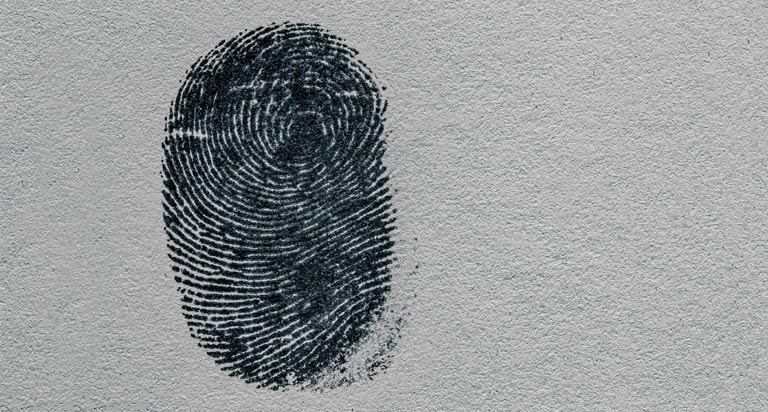What Is Unemployment Identity Theft?


Highlights:
- Unemployment identity theft occurs when a criminal uses a stolen identity to apply for unemployment insurance (UI) benefits that they did not earn themselves.
- If you really do become unemployed after someone has used your information to collect UI benefits in your name, you may be ineligible for economic support when you really need it and find yourself owing taxes on the stolen funds.
- Keep an eye out for communications from a state or federal agency about unfamiliar unemployment benefits or notices from your current employer inquiring about UI claims, as these could be signs of unemployment identity theft.
Unemployment insurance (UI) helps temporarily support out-of-work workers as they try to find another job. However, criminals can take advantage of these benefits by filing a fake UI claim. This is a crime known as unemployment identity theft.
How does unemployment identity theft happen?
UI benefits are part of a joint state-federal program that offers support to eligible unemployed individuals to help cover expenses as they search for a new job. Workers in most states are eligible for up to 26 weeks of UI benefits, which are calculated as a percentage of previously earned wages (the percentage varies by state) and paid directly to the unemployed worker.
Eligibility requirements for UI benefits vary from state to state. However, in most cases, an individual qualifies if they:
- Are unemployed involuntarily and through no fault of their own
- Meet state requirements for wages earned or time worked during an established period of time
Unemployment identity theft occurs when a criminal uses a stolen identity to apply for UI benefits that they did not earn themselves.
Thieves can obtain your personal information in many ways, including lost or stolen Social Security cards, phishing scams, malware and computer hacking. A thief might then take advantage of poor or out-of-date infrastructure in state-administered programs to submit false applications in multiple states.
Like other forms of fraud, unemployment identity theft can have serious consequences for its victims. Suppose you really do become unemployed after someone has used your information to collect UI benefits in your name. In that case, you may be ineligible for economic support when you really need it.
Even if you don’t become unemployed, you could find yourself responsible for benefits falsely attributed to you. Because UI payments are generally reported as income you may end up owing taxes on money someone else received using your identity.
Save yourself from the frustrating and expensive fallout of unemployment identity theft by taking action to help protect yourself and your identity.
Signs of unemployment identity theft
Be alert for these warning signs that your identity may have been used by a stranger to claim unemployment benefits. You likely have cause for concern if you receive:
- IRS form 1099-G reporting unemployment benefits you didn’t apply for or collect
- Communications from a state or federal agency about unfamiliar unemployment benefits
- Notices from your current employer inquiring about UI claims
- Letters from the IRS regarding underreported benefits
- Messages indicating you failed the security verification process for a UI claim you didn’t make
What can I do to help better protect myself from unemployment identity theft?
Unfortunately, there’s no way to guarantee protection from unemployment identity theft. However certain strategies can help you reduce your risk:
- Keep your personally identifiable information confidential. Keep documents that include your personally identifiable information, such as your name, address, Social Security number and date of birth, in a secure location. When disposing of mail and other documents, shred them or black out sensitive information. Avoid carrying your Social Security card with you, and never repeat your Social Security number aloud in a public place.
- Maintain good cybersecurity practices. Thieves can use digital means to steal your identity. Make sure your browser, operating system and software is updated so you can receive the security updates that can help protect against malware. Use password encryption whenever possible.
- Avoid phishing scams. Phishers send unsolicited texts, emails or calls that attempt to trick you into giving out personal information. Check the email address or phone number of any unexpected communication for misspellings or character substitutions. Be wary of anyone claiming to represent a government agency, especially if they ask for your Social Security number or other personally identifiable information.
- Review your credit reports. Regularly review your credit reports for activity you don’t recognize, as this may indicate that your personally identifiable information has been stolen.
You can receive free Equifax® credit reports with a free myEquifax account. Sign up and look for “Equifax Credit Report” on your myEquifax dashboard. You can also get free credit reports annually from the three nationwide consumer reporting agencies — Equifax, TransUnion® and Experian® — at AnnualCreditReport.com.
What to do if I am a victim of unemployment identity theft
If you believe you’ve become a victim of unemployment identity theft, act quickly. Start by contacting your state’s unemployment insurance agency and reporting the crime to the fraud department.
Next, notify your employer, as they may need to file paperwork about the fraudulent claim. If you think the thief has already received a UI payment, the IRS may be able to prevent the funds from being falsely reported as your income.
You can also file a scam report with the Federal Trade Commission (FTC) online at ReportFraud.ftc.gov or by phone at 877-382-4357.

Sign up for a credit monitoring & ID theft protection product today!
For $19.95 per month, you can know where you stand with access to your 3-bureau credit report. Sign up for Equifax CompleteTM Premier today!



